 AGW (thanks to Michael Crichton's State of Fear), but more and more evidence for climate change forced him to face reality:
AGW (thanks to Michael Crichton's State of Fear), but more and more evidence for climate change forced him to face reality:What causes someone to change their mind about climate change? It is no secret that climate change is a highly polarized subject with some people accepting what climate scientists tell us, and others who think those scientists are only in it for the money, or that the globe isn't really warming, or that, if it is warming, it's nothing to worry about. But occasionally, some people change their minds and move from "doubtful" or "dismissive" about climate change to "concerned" and "alarmed". What moved these people? Was it a particular argument or a specific graph? Was it because of a sudden "aha!" moment when the light bulb flashed and all of climate science made sense, or was it something else?
Over the past several years there have been a number of reports from some of these "converts" explaining how they changed their minds. This post looks at some of these accounts with the goal of discovering what led these people to change their minds. This is by no means an exhaustive list. If you know of other examples not seen here please add to the list in the comments section.
Scientists are naturally, and appropriately, skeptical. They ask questions about how the world works; and when they find answers they ask further questions about those answers, always striving to get to better explanations of the natural world. So it is no surprise that scientists would turn their skeptical eyes to anthropogenic climate change (AGW).
Kasra Hassani was a scientist working in microbiology and immunology who had a skeptical view of climate science. At first he thought there were more immediate problems facing humankind than climate change. For a time, he toyed with conspiracy theories about AGW (thanks to Michael Crichton's State of Fear), but more and more evidence for climate change forced him to face reality:
AGW (thanks to Michael Crichton's State of Fear), but more and more evidence for climate change forced him to face reality:
I created a list of every question and doubt I had about the physics, chemistry, biology, economics and politics of climate change, and I started reading. I took online courses. I listened to podcasts. Every myth in my head popped and floated away.
Hassani also said,
No singular bit of evidence unequivocally proved to me that humans were responsible for climate change, which makes sense if you're a science nut like me. Science works on multiple proofs. One experiment or piece of evidence supports a theory, it doesn’t prove anything.
Over time, as different researchers gather more evidence, a theory becomes refined and a more acceptable explanation for natural phenomena. It also took time because I was never astonished by a piece of evidence or a big news story; when you are in denial, evidence is unlikely to change your mind. On the contrary, it might persuade you to cover your ears and pretend you're not listening.
Hassani realized that denial was the easier answer. The real effort was in recognizing his own biases, and seeing that his own strong-held beliefs and stubbornness went beyond a healthy skepticism:
No human is free of bias. There could be certain social, political and even personal circumstances that would stiffen a thought or belief in one's mind. It takes effort try to identify our biases and rid ourselves of them, or at least be conscious of them. But it's definitely worth it.
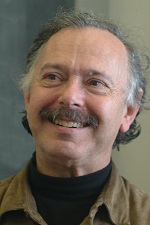 Richard Muller is a physics professor at the University of California, Berkeley who looked critically at certain climate studies and identified problems with global temperature records which, for him, "threw doubt on the very existence of global warming". So, like a good scientist, he looked at the data with fresh eyes and created the Berkeley Earth Surface Temperature (BEST) Project to see if global warming was really occurring. Long story, short: BEST verified what other climate scientists already knew--the globe is warming and human CO2 emissions are the cause. (Here is a short video of Muller explaining his work.)
Richard Muller is a physics professor at the University of California, Berkeley who looked critically at certain climate studies and identified problems with global temperature records which, for him, "threw doubt on the very existence of global warming". So, like a good scientist, he looked at the data with fresh eyes and created the Berkeley Earth Surface Temperature (BEST) Project to see if global warming was really occurring. Long story, short: BEST verified what other climate scientists already knew--the globe is warming and human CO2 emissions are the cause. (Here is a short video of Muller explaining his work.)
Muller credits his "total turnaround" to "careful and objective analysis". But was his former skepticism "healthy" or "unfounded"? Perhaps there is a fine line here, but another scientist, James Powell, sees Muller's skepticism as arrogance:
I think that we could learn from the case study that Muller did is that he should have trusted the other scientists and the peer review process which had produced the data that he was questioning.
But good science should be replicable, and in this case, Muller's work strengthened the prevailing science. So, whether his skepticism was healthy or bordered on denial, it eventually led Muller (and all of us) to see more clearly the reality of AGW.
Climate is merely the average of weather over some time period, so meteorologists should have a keen interest in whether or not the climate is changing. But many meteorologists are quite dismissive of AGW. Minnesota weatherman, Paul Douglas, explains: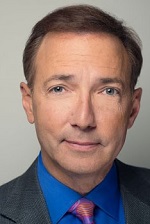
Some TV meteorologists, professionals who are skilled at predicting short-term weather, are still in denial. Why? Some don’t like being upstaged by climate scientists; we’ve all been burned by weather models, and some (mistakenly) apply the same suspicion to climate models. Others haven’t taken the time to dig into the climate science.
Douglas, a moderate Republican and conservative Christian, was skeptical like most of his colleagues:
My climate epiphany wasn’t overnight, and it had nothing to do with Al Gore. In the mid-90s I noticed gradual changes in the weather patterns floating over Minnesota. Curious, I began investigating climate science, and, over time, began to see the thumbprint of climate change, along with 97% of published, peer-reviewed PhD’s, who link a 40% spike in greenhouse gases with a warmer, stormier atmosphere.
Douglas recognized that AGW has become a political football: "'It’s all political' one local TV weather-friend told me recently. No, it’s science. But we’ve turned it into a political football, a bizarre litmus test for conservatism." But Douglas was able to ignore all of that and focus on what really mattered: the science.
Stu Ostro, a meteorologist with Accu-Weather and The Weather Channel, described himself as a "vehement skeptic…not only about a human role in global warming, but also the idea that there was anything unusual about any weather we had been seeing."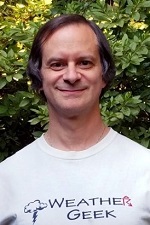
I am a meteorologist, not a climate scientist. I hadn't ever read any peer-reviewed scientific literature on climate change. Why bother? I was busy forecasting the weather, didn't have much spare time, and anyway all this global warming business was bunkum.
But, while forecasting the weather, Ostro began to notice "that something ain't right." The weather patterns he was used to were changing. He collected example after example after example of changes in the weather which point to a changing climate. His change from skeptic to acceptance of AGW didn't happen overnight:
Let me be clear: the change from hard-core skeptic to my current way of thinking was not a sudden, reactionary thing based on a single warm day! It was a looong journey, based on trying to assimilate all the information I could.
That has included being more "plugged in" to the climate science community during the time since Dr. [Heidi] Cullen came to TWC [The Weather Channel] and having an increased awareness of the different perspectives that climatologists bring.
Ostro was the very definition of healthy skepticism:
I come to my own objective conclusions, and that will never change. Skepticism is a fundamental part of the scientific process, and healthy when in that vein. I continue to look at data with a skeptical eye. However, skepticism is not constructive when it becomes overwhelming and results in being closed-minded and only seeing what you want to see.
Greg Fishel has been a broadcast meteorologist in Raleigh, North Carolina for his whole career. He, too, was dismissive about AGW, but he said, "little by little and over a period of several years, I began to wonder if I was being fair and objective in my assessment of global warming."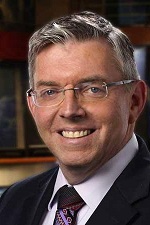
In 2005 he realized he had to give AGW an unbiased look:
I woke up one morning convinced of my own confirmation bias. I felt I’d abandoned my work as a scientist to be an ideologue...
I didn’t change my mind about global warming that day. Instead, I committed to talking with scientists who were actually involved in research and who published peer-reviewed literature in respected scientific journals. I also read many of those papers...
My argument that global warming had nothing to do with human activity was, I realized, an argument I would lose in the scientific court of law.
Fishel decided to change when he realized that his former skepticism was biased because of his political views. When he looked at climate science with an open mind, he realized that "tribal loyalty has no place in science".
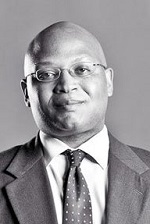 In 2010, Massachusetts-based, conservative journalist D. R. Tucker was dismissive of AGW, saying: "It was my firm belief that the science was unsettled, that any movement associated with Al Gore and Van Jones couldn’t possibly be trusted, that environmentalists were simply left-wing, anti-capitalist kooks." But, after reading a book which had informed him that the Republican party had once had environmental and conservationist concerns, he "was curious as to how the political climate shifted with regard to environmentalism—and whether there was something to all this talk about climate change."
In 2010, Massachusetts-based, conservative journalist D. R. Tucker was dismissive of AGW, saying: "It was my firm belief that the science was unsettled, that any movement associated with Al Gore and Van Jones couldn’t possibly be trusted, that environmentalists were simply left-wing, anti-capitalist kooks." But, after reading a book which had informed him that the Republican party had once had environmental and conservationist concerns, he "was curious as to how the political climate shifted with regard to environmentalism—and whether there was something to all this talk about climate change."
A friend challenged him to read the then-current Intergovernmental Panel on Climate Change (IPCC) report (AR4), which Tucker did:
Initially I was a bit skeptical. But I kept on reading it, and there was just so much evidence, and it was so detailed, and it was so backed up, and it was so documented, that I was like, 'holy shit, this is for real.'
Tucker put it simply, "I was defeated by facts".
Jerry Taylor was the resident climate change "skeptic" at the libertarian think-tank Cato Institute, who "used to write skeptic talking points for a living". He often appeared on television and radio news programs for the "skeptic" side in the climate change "debate". On one such program he went up against Joe Romm, a physicist and blogger at ClimateProgress. Taylor describes the encounter:
On air, I said that, back in 1988, when climate scientist James Hansen testified in front of the Senate, he predicted we’d see a tremendous amount of warming. I argued it’d been more than a decade and we could now see by
looking at the temperature record that he wasn’t accurate. After we got done with the program... Joe said to me, “Did you even read that testimony you’ve just talked about?” And when I told him it had been a while, he said “I’m daring you to go back and double check this.” He told me that some of Hansen’s projections were spot on. So I went back to my office and I re-read Hanson’s testimony. And Joe was correct. So then I talked to the climate skeptics who had made this argument to me, and it turns out they had done so with full knowledge they were being misleading.
After that, I began to do more of that due diligence, and the more I did, the more I found that variations on this story kept arising again and again. Either the ["skeptic"] explanations for findings were dodgy, sketchy or misleading or the underlying science didn’t hold up.
Taylor gradually saw that his previous talking points about climate science were rubbish. With an open mind, he looked further at his economic and policy arguments against action on climate change and they too crumbled.
When asked what works to change conservative Republican's minds about climate, Taylor said:
[T]alking about the science in a dispassionate, reasonable, non-screedy, calm, careful way is powerful, because a lot of these people have no idea that a lot of the things they’re trafficking in are either the sheerest nonsense or utterly disingenuous.
There is an excellent interview of Jerry Taylor in a podcast put out by Reckonings and Enquiring Minds. At the end of the podcast the hosts are discussing the fascinating story of Taylor's "conversion" and one of the hosts, Stevie Lepp, says, "Jerry Taylor really is this rare bird whose mind was changed by information."
But, how rare is Taylor's case? All of the cases presented here rely heavily on an open-minded look at accurate information about climate change. In the examples described here, we have seen people who were able to look beyond their ideological filters and look just at the science in an open minded, non-biased way. These few examples of people who have changed their minds about climate change show how central "the science" is to their "conversions".
Perhaps I just chose examples which illustrate this point. Fair enough. There are other reasons why people may change their minds. And sometimes people have multiple reasons for accepting the reality of AGW.
In a recent Reddit conversation the question was put out: "Former climate deniers, what changed your mind?" Karin Kirk*, at Yale Climate Connections, analyzed the responses and found that "science" was the number one reason people gave for changing their minds (47%). The second most popular reason people gave was "stewardship" of the Earth (29%), and the third was the changing weather (21%). The fourth reason (17%) is related to the first: the credibility of science deniers' arguments. Kirk noted, "An interesting sentiment among the commenters was that climate science deniers’ attempts to discredit climate science often had the opposite effect." The poor quality of scientific arguments used by science deniers, as Jerry Taylor discovered, leads many to look more closely at valid scientific arguments, which further leads them to see how solid the science behind AGW really is. (For more on the poor quality of "skeptic" research see Lewandowsky et al. 2016 and Benestad et al. 2015.)
One reason Stevie Lepp (the host of the Reckonings podcast) thought that it was rare for people to be swayed by information is because often factual information can "backfire". Some people are adept at using "motivated reasoning" when they hear inconvenient facts which might seem to threaten their worldviews. Rather than correcting misinformation or misunderstandings about science, these facts "backfire" and strengthen the misinformed views of the motivated reasoner. For this reason, climate science communicators often avoid using an "information deficit model" when describing climate change. The information deficit model of communication assumes that if someone has a lack of knowledge or is misinformed on some topic then simply giving them the proper information should be enough to correct the misunderstanding. This simple model breaks down because people use motivated reasoning, and when confronted with inconvenient facts the information backfires.
There have been many studies looking at the "backfire effect" and "motivated reasoning", but there have also been studies which find that these effects may not be as strong as once thought. (Also see Stephen Lewandowsky's post on some of this new research.) Indeed, the people we have seen in this post show that sometimes the information deficit model works, especially when self-administered. With an open mind, it is possible to short-circuit one's biases and motivated reasoning, and just use logical reasoning. With this type of critical thinking facts do not backfire.
Climate change is fundamentally a scientific topic. Earth's climate system operates according to the laws of physics and chemistry. The Sun emits a certain amount of energy, carbon dioxide in the atmosphere absorbs and emits certain wavelengths of infrared radiation, etc. These and so many other known facts about the natural world converge to give us a coherent view of how the climate system works. None of this has anything to do with whether someone is liberal or conservative, Republican or Democrat. Before any human concerns about climate change can be addressed (such as carbon taxes, what types of energy sources to use, or what international agreements we should agree to, etc.), we have to know and understand how the natural world works. And that understanding exists whether we do anything about climate change or not. It is entirely independent of any human concerns.
The examples of climate change "converts" seen in this post all realized that to get a true understanding of climate change they had to set aside their motivated reasoning and take an open-minded look at climate science. And when they do so with a truly unbiased mind they have no choice but to be "defeated by the facts".
A few final notes--the "backfire effect", "motivated reasoning" and the drawbacks of the "information deficit model" are all valid points to remember about the pitfalls of science communication. Sometimes facts don't matter. But, in the case studies shown in this post, something more than merely communicating science facts person to person (or blog post, etc. to person) is going on. Each one of these cases was highly self-motivated to confront their prior beliefs open-mindedly and they all did the necessary "homework" to grapple with the science underpinning AGW.
Also, I purposefully titled this post "How to Change Your Mind About Climate Change" rather than something like "How to Change Other People's Minds..." because I think this type of "conversion" is fundamentally a self-directed enterprise. Too often, as climate science communicators, we worry about exactly how to massage or frame our statements just the right way, striving to avoid backfire effects in our readers. Yes, this is important, but, ultimately the onus is on the reader to approach the topic with an open mind and with the desire to actually learn from past misunderstandings. The old saw is true: "You can lead a horse to water, but you can't make him drink".
*Karin Kirk talks about her analysis in this short radio program. She also has a number of relevant articles at Yale Climate Connections:
Posted by David Kirtley on Wednesday, 7 February, 2018
 |
The Skeptical Science website by Skeptical Science is licensed under a Creative Commons Attribution 3.0 Unported License. |